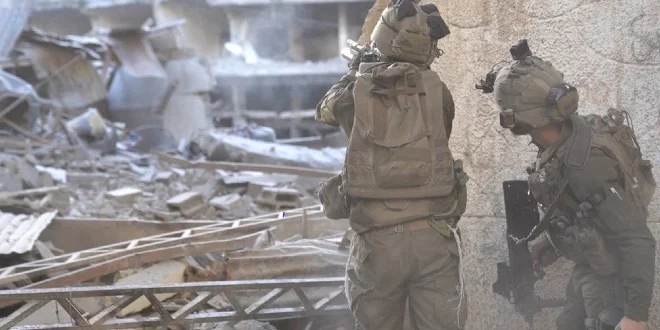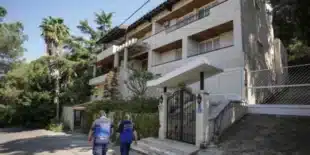The conflict in Gaza, now in its 13th week, continues with no foreseeable end, leaving the Palestinian residents feeling weary and drained. The recent focus of the conflict has been in Khan Yunis, in southern Gaza, which has seen extensive fighting since it began on October 7 following attacks by Hamas on Israel.
In Rafah, near the Egyptian border, crowds of Gazans are seeking refuge from the ongoing Israeli airstrikes aimed at Palestinian militants. Umm Louay Abu Khater, a 49-year-old woman who fled from Khan Yunis to Rafah, expressed her exhaustion from the constant displacement and bombardment.
The Israeli military continues its operations amidst international concerns, reporting heavy combat and airstrikes throughout Gaza. Notably, in Beit Lahia in northern Gaza, the Israeli forces reported dismantling two Hamas military compounds, and in Gaza City, they claimed to have killed dozens of militants.
UN Secretary-General Antonio Guterres has repeated his call for an immediate humanitarian ceasefire, and the World Health Organization has raised alarms about the risk of infectious diseases spreading among the Gazan population.
The fighting, which began with Hamas’s attacks on October 7, has resulted in approximately 1,140 deaths in Israel, mostly civilians, and the capture of about 250 people, with 129 still reportedly held in Gaza. On the other hand, the health ministry in Hamas-run Gaza reports over 21,500 deaths, predominantly women and children, due to the Israeli military campaign. Israel also reports the loss of 168 soldiers in the conflict.
As the year 2023 nears its end, Ahmed al-Baz, a 33-year-old displaced from Gaza City, reflects on the year as the worst of his life, marked by destruction and devastation.
Efforts for mediation continue, with international mediators working towards a new ceasefire agreement. Reports indicate that Hamas is open to discussions about releasing hostages in exchange for a ceasefire. A Hamas delegation in Cairo is also discussing an Egyptian plan for staggered hostage releases and a phased end to the conflict.
Israeli Prime Minister Benjamin Netanyahu has acknowledged contact with Egyptian mediators and reassured families of captives of ongoing efforts to secure their return.
In related news, Mia Shem, an Israeli-French individual released under a truce agreement, shared her experiences of captivity, including fears of assault and lack of medical care.
Meanwhile, the humanitarian situation in Gaza remains dire due to an Israeli siege, exacerbating the already challenging conditions from a longstanding blockade. The U.N. reports that over 85 percent of Gaza’s population has been displaced, facing hunger and harsh winter conditions.
The WHO has expressed concern over the rising threat of infectious diseases in the region, with significant numbers of respiratory infections and diarrheal cases reported, particularly among young children.
In response to the situation, South Africa has sought legal action against Israel at the International Court of Justice, accusing it of genocidal acts in Gaza, a claim Israel firmly rejects.
Amidst these developments, the U.S. has approved an emergency sale of artillery munitions to Israel, citing the urgent nature of the situation.
The Gaza conflict continues to contribute to regional tensions, with Israel engaging in cross-border exchanges with Hezbollah in Lebanon and responding to rocket launches from Syria.


